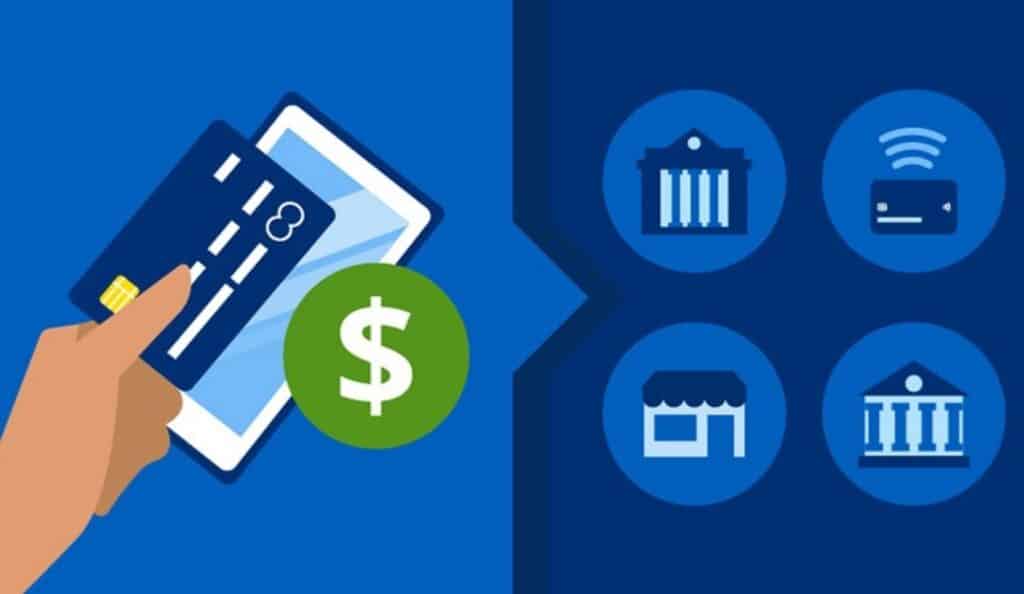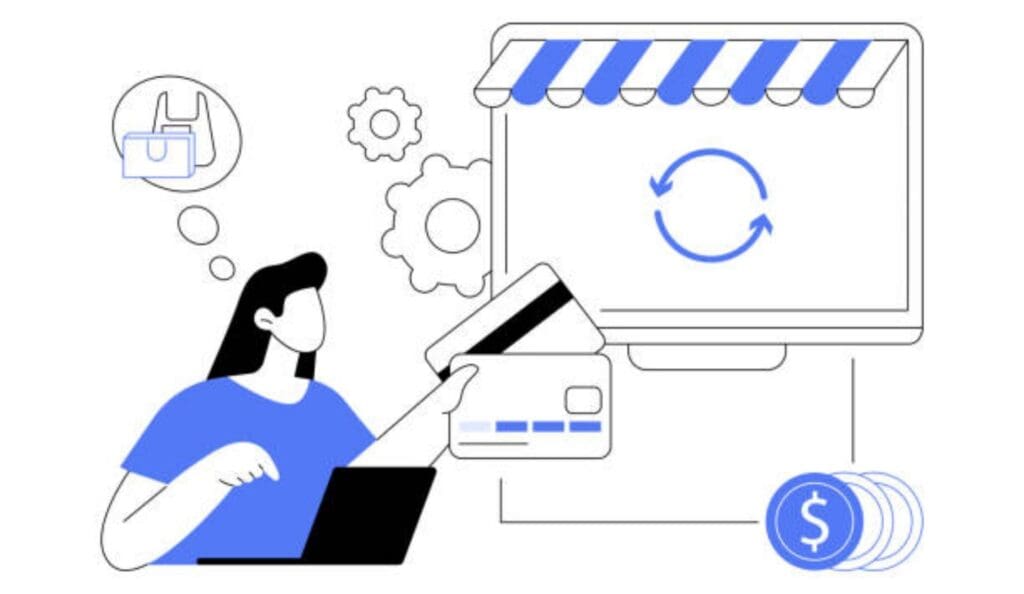
By Barbara Thomas March 24, 2025
Being a payment processing agent is a wonderful opportunity for entrepreneurs to get into an expanding sector. These agents serve businesses by accepting payments, processing transactions, and securing everything.
The payment processing market is projected to grow by 10.2% annually from 2021 to 2026. Many businesses still use poor payment systems, which can hurt sales and customer satisfaction. Agents can connect businesses with the right payment processor for their needs.
What is a Payment Processing Agent?

A payment processing agent, also known as a merchant services agent, is an individual salesperson working with payment companies. Most of your work is to assist enterprises in improving through new payment systems that secure and streamline transactions. Agents make money by charging businesses fees for these services. They purchase processing rates for cheap and sell it to businesses at a higher price. Their work includes assisting businesses in switching over service providers and filling out the appropriate forms.
This is how the agent earns his money, buying cheap and selling higher to the businesses. As long as the business continues to use their services, they continue to make money. You will need to have a solid knowledge of payment technology and be able to develop strong relationships with business owners to help them find solutions for their payment needs.
Duties of Payment Processor Agent
A payment processing agent links payment processors with business owners. It assists organizations in enhancing their payment systems and ensures safe and efficient transactions. They also market and sell payment services in order to provide processors with more clients. Working hours are flexible and you get paid when you make a deal.
They focus on winning new clients, relationship management, selling payment solutions, support, adhering to regulations, and measuring outcomes. Agents scout businesses that want to improve their payment methods, establish strong relationships with them, and offer smart advice. They keep up to date with new payment technology to ensure transactions can be completed quickly and safely.
They also help businesses get their payment systems up and running, train employees to use the tools, and offer continuing customer support. They make sure that businesses adhere to crucial guidelines and standards, such as the Payment Card Industry Data Security Standard (PCI DSS).
Why Become a Payment Processing Agent and What Does It Do?
Payment processing agents can be a good career for individuals who wish to expand their business in a rapidly growing sector. The career can generate high earnings through commissions from companies they refer to, provides flexible work arrangements, and has the potential for long-term development in online shopping. Agents can grow into new markets and employ new technologies to perform more effectively.
Entry into this career can cost little money since most providers provide ready-to-use platforms. Furthermore, the career provides valuable experience in sales, customer service, and handling money, making it a good career for the future.
Agents help payment companies to acquire merchants for new secure payment schemes. Agents work towards increasing business by selling payment products. Agents can work full-time or part-time, with flexibility and pay for performance. They can work with other positions or specialize in the same.
Becoming a Payment Processing Agent

If you have the knowledge, it is easy to become a payment processing agent. This means knowing how issuing and acquiring banks operate, the technology involved, and the steps that take place in the process.
Research various payment processors and review their services, support, and terms to select a suitable partner. That is vital as it will aid you pick the best reseller program and company. And once you have the lay of the land, you will know which program to apply for. After that, fill out the application, and you will be on your way to being a payment processing agent.
High performers tend to have an innate understanding of merchants’ business pains. They Know How Their Payment Processing Solution Meets Those Specific Needs Furthermore, these agents are adept at building relationships with merchants and demonstrating the ways a payment processing partner can help expand a merchant’s business
Tips and Skills Every successful payment processing agent should know

Tip One- Explore payment processing and its Detailed Workings
Getting Deeper into Payment Processing and its working process in detail. People are far more likely to buy a product when they know that the seller is knowledgeable about the product. In that context, becoming an expert in all aspects of merchant payment processing that stretches far beyond the basics will set you up for maximized success.
Tip Two-Choosing a Niche
There are countless merchants and business niches out there, so to become an expert fast, focus on one or two merchant niches. For example, one agent might focus on software-as-a-service (SaaS) providers, diving deep into their payment processing needs. Doing so across multiple industries at once makes it difficult to ever truly specialize.
You could maybe branch into a second, complementary niche alongside your primary focus. For example, hotels and travel pair naturally.
As you refine your focus on one or two niche areas that are related, you’ll be establishing yourself as an expert and serving your merchant customers that much better.
Tip Three-Partnering with Merchant Payment Processor
Make sure you have the right merchant payment processor in place with a payment processor that has dedicated agent support. Agents at Card Connect benefit from continuous support, scalable payment mechanisms to generate future income growth, and CoPilot, their ready-made platform for managing portfolios.
Tip Four-Giving and Knowing the Merchant
Give your merchants what they want, and that is While each merchant has specific payment challenges, the vast majority of merchants share the same payment management needs. As their agent, you can arm them with solutions built specifically to meet these common market needs.
Card Connect (MasterCard) enables you to provide ready-made payment services that can be adapted to different merchant goals. These products include CardPointe, an end-to-end payment management platform; Bolt, a secure card-present acceptance solution; and Clover, a leading point-of-sale payments platform. Using these tools, you can offer merchants the precise features and functionality they need.
Tip Five- Service-Oriented Mindset
It may be difficult to start a credit card processing business but it is helpful in knowing the clients and developing payment solutions that suit them. A service-oriented mindset is very important since new businesses can be viewed with suspicion by future clients. To determine your niche, think about previous experiences and businesses that have unique payment requirements. High-risk processors benefit companies that have a higher risk of fraud or chargeback, like internet gaming, travel, or adult entertainment.
The sector can be productive and establishes you as a significant provider for an area where regular processors tend to shy away. If there’s no niche industry you prefer, look for emerging industries such as tech startups, golf clubs, medical facilities, or local stores. Customizing payment solutions for various businesses can make you a go-to expert in your industry.
Tip Six-Selecting the Proper ISO and MSP
As a payment processing agent, selecting the proper ISO (Independent Sales Organization) or MSP helps you succeed. What should we look for? Knowledge, reputation, technology, integrity, clarity. You will get industry-specific information, and the ISO or MSP you choose will be able to provide solutions tailored to your audience. How they may be able to impact your work. It should have up-to-date technology and provide clear explanations of its fees and policies.
The right partner program should align with your financial goals, provide you control over your earnings, and offer support. Seek programs with no setup fees or monthly minimums. Finally, the support quality and company culture need to meet your standards and that of your clients.
Tip Seven-Selecting A Payment Provider
Once you know your focus area, learn a bit about merchant services, and select a payment provider, the next step is to apply with the chosen MSP, ensuring that your work experience and goals align with their agenda.
Tip Eight-Portfolio of Business Material
However, to boost sales and appear professional, you need to establish a full portfolio of business materials. This will cover basic components such as white papers, flyers, brochures, a professional website, social media accounts, business cards, and the client onboarding process.
This includes great knowledge, persuasive marketing copy, a professional website, a beautiful social media account, great-looking business cards, and effective systems for tracking client data and complying with the laws. This creates trust and professionalism can assist in attracting clients.
Tip Nine-Offering Benefits
The best way to do well in credit card processing is to offer benefits that lure business owners in, being able to charge more money with excellent customer care and fewer interruptions along with a perfect blend of payment options. Improvise profit and pricing with lower transaction fees as a competitive differentiator Demonstrate empathy and a sincere interest in helping clients to reach their goals.
Conclusion
To become a successful payment processing agent, you have to familiarize yourself with the transaction process, stay up to date on the changes in the industry, and build trust with business owners.
Knowledge and Relationship Skills are in a Tough Market Agents who make themselves more responsive to their clients will experience long-term benefits from this stream of clients as people look for safe and effective payments. By honing these skills, one will be able to remain competitive and valuable in the real world of payment processing.